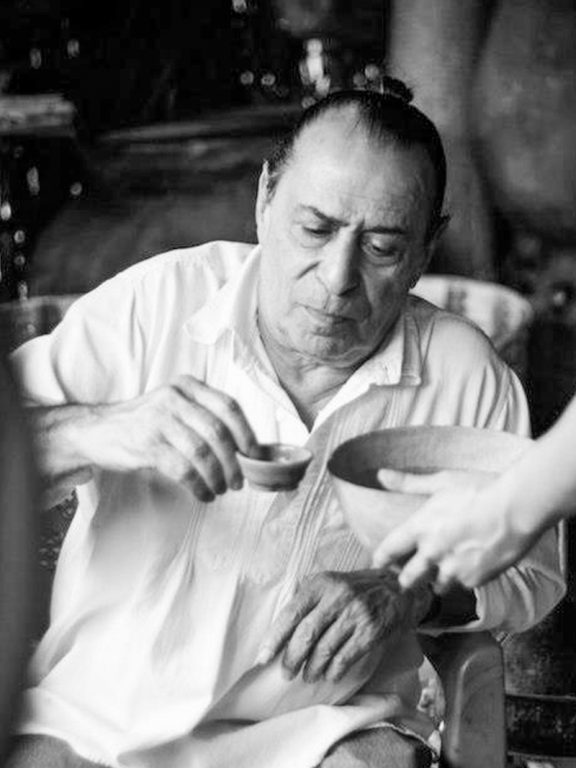The mezcal boom is happening: A global demand for the Mexican spirit in the last five to six years caused a rapid increase in the number of brands available. The U.S. is driving a large part of this market trend, but the demand is international. And consumption is destined to grow, as mezcal becomes distributed more widely, backed by huge investments in marketing.
The mezcal industry, coming off a 20-year period of low production levels, and saddled with an underdeveloped infrastructure that slows the export of its products, wasn’t ready for this growth. As an importer, we at the Back Bar Project in Seattle, face many challenges importing mezcal: delays at the border, shortages of caps and bottles, missed deliveries due to protests. Our producers often have to work shipment to shipment in order to secure enough materials, like glass bottles, to continue their work.
Of course, the rise in mezcal’s popularity also means more opportunity. The market was so bad for so long that many in the previous generation of mezcaleros left the family business behind, seeking work either in big cities or another country. Today cash is flowing in and young men and women are either returning or never leaving in the first place. I’m proud of how our work as an importer and advocate for the brands we represent directly affects that process. Families are being reunited, and parents are working alongside their children. We’re not just securing a future supply of mezcal for our business; we’re helping to secure a future for the next generation of mezcaleros.

Don’t miss the latest drinks industry news and insights. Sign up for our award-winning newsletters and get insider intel, resources, and trends delivered to your inbox every week.
Whether we like it or not, our goals for mezcal can’t be the same as they are for other spirits categories. Mezcal has typically been made by skilled artisans working in a family setting, on a small, controlled scale. Many of our producers work with only one or two small pot stills. We run out of stock and have frequent gaps in distribution. While that would rankle us with any other type of liquor, we plan our year around the limitations of mezcal production.
It’s well known that mezcal production also faces several environmental risks, and my feelings on the topic are absolute: All brands and producers should strive for sustainability in every aspect of their production. And sustainability applies not only to the environment; it includes the preservation of a culture, largely based on Oaxaca’s indigenous cultures, that has long been under threat. Fortunately, the families that we work with at El Jolgorio and Nuestra Soledad all share deeply held beliefs on caring for the land. They carefully control production volumes around the supply of agave and invest in reforestation. In fact, Casa Cortés practiced widespread planting of Espadin agave years before mezcal gained popularity, with the belief that their mezcal might one day find acceptance in the market. That belief has paid off.
Sustainability will also require us to look farther afield than we have in the past. Although the D.O. for mezcal is quite large, the major portion of mezcal exported from Mexico is still produced in one region—Oaxaca. The focus on Oaxaca adds to the strain on that region’s environment. In response to the many brands entering the market, we’ve begun to look outside Oaxaca for producers; currently we’re working on launching new brands from three other states in Mexico—although these states have the same production problems, which means our logistical troubles won’t necessarily be fixed.
The most dramatic economic threat to small producers may come as multinationals continue to enter the category. There’s now a drive to fill the global demand for mezcal, and filling that pipeline means agave will be sourced on the open market at ever-higher prices—driving the price artificially high and making it impossible for small producers without their own fields to source the plant. A core of the most business-savvy small producers will likely survive, but their financial pressures will grow. Others may seize the opportunity to produce for large companies on a contract basis.
While that may sound like a good thing—higher production means more jobs and, in turn, more money to improve local economies—it’s hard to ignore the cultural risks. The family unit is the primary mode of mezcal production and has been for centuries. The knowledge of mezcal production still passes from parent to child. If large mezcal factories ever begin to outnumber small-scale producers, implementing industrial technologies like diffusers and drawing a steady supply of workers away from family distilleries, that would put a strain on the family dynamics that so define mezcal today. And as mezcal becomes a global spirit, its place at the center of family traditions in Mexico stands to be diminished.
Our goal is to send the right message to a growing number of consumers who are experiencing mezcal for the first time. There’s a responsibility that comes with drinking, and selling, mezcal—one that falls on new brands, importers, distributors, and bartenders alike. As we promote mezcal and educate our customers about it, we need to stress the importance of responsible production and the preservation of tradition and culture. And those must always be more important than the bottom line. We must remember that we’re dealing with a spirit that is fundamentally unlike any other.
Kaj Hackinen is the vice president and cofounder of Back Bar Project, a spirits importer based in Seattle, Washington, that imports the El Jolgorio, Nuestra Soledad, and Agave de Cortés mezcals.






